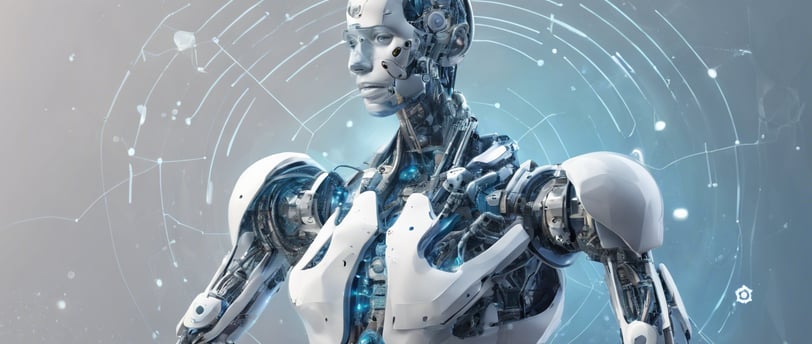Open AI vs Google SEO
Jump into the future of business marketing.
James Junior Barry
10/5/20242 min read


Open AI Vs SEO
OpenAI and similar AI technologies are not directly "taking over" Google SEO, but they are influencing significant changes in how search engines and online content are evolving. Here's how OpenAI and AI in general are impacting the SEO landscape:
1. AI-Powered Search Enhancements
- Google’s AI-driven search: Google has introduced AI into its search engine, with models like BERT and MUM, which help the engine better understand natural language queries. These advancements allow Google to interpret context and intent more accurately, reducing reliance on keyword-based SEO.
- Generative AI in Search: Google introduced its Search Generative Experience (SGE), where AI-generated answers are presented at the top of search results in a conversational style. This could reduce the need for users to click on traditional search results, impacting how SEO is approached.
2. AI-Generated Content
- Content Creation Tools: OpenAI's models, like GPT-4, are being used by marketers and businesses to quickly generate content. This can lead to a massive increase in the amount of content published online. However, search engines are evolving to differentiate between AI-generated and human-generated content to maintain quality. Google's "helpful content" update specifically targets low-quality, automated content.
- Optimizing Content with AI: AI is being used to generate not just articles but entire SEO strategies, analyzing trends and predicting user behavior to create content that ranks better. Tools powered by GPT models can assist in optimizing on-page SEO, improving keywords, meta descriptions, and user experience.
3. SEO Automation
- AI tools can now automate many tasks that were traditionally done manually, such as keyword research, content audits, and link-building strategies. This can make SEO more efficient but also increase competition as more businesses are able to employ sophisticated tactics with less effort.
4. Shift to Conversational AI (Chatbots)
- With AI tools like ChatGPT, people are using conversational agents to get answers instead of traditional search engines. This shift in behavior could lead to a decrease in search volume over time, changing how websites and marketers focus their SEO efforts. Businesses may start optimizing for AI models and chatbots rather than just for search engines.
5. Impact on Click-Through Rates
- As AI-generated responses become more detailed and provide direct answers, users may not feel the need to click on websites, leading to a decrease in organic traffic. SEO strategies may need to adapt to this by focusing more on capturing leads or visibility within the AI-generated content itself.
Conclusion:
OpenAI is influencing the SEO landscape by transforming how content is generated, how search engines interpret queries, and how users find information. While it’s not "taking over" SEO, it’s creating a significant shift in best practices, pushing businesses to rethink their strategies in a world where AI-generated content and AI-powered search play a bigger role.

Empower
Streamline your online presence with advanced AI tools.
Innovative
Optimize
